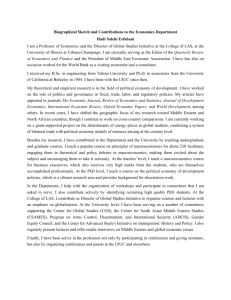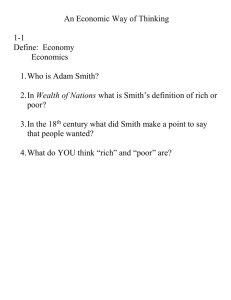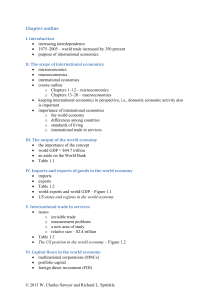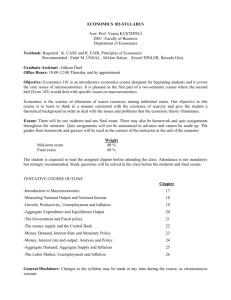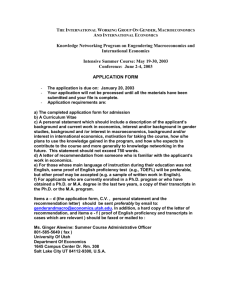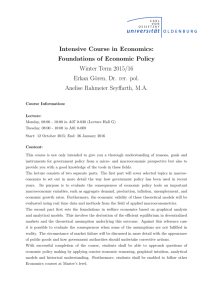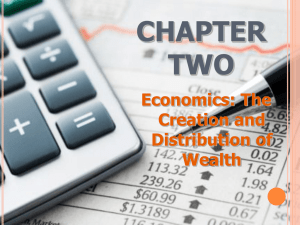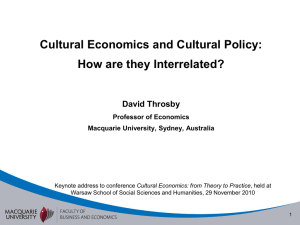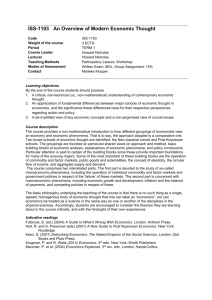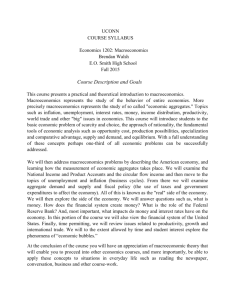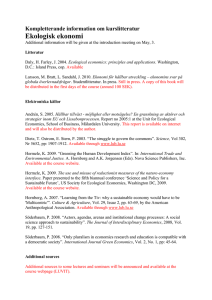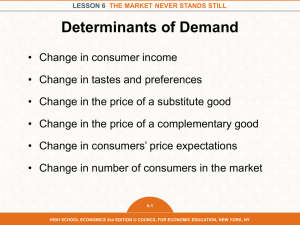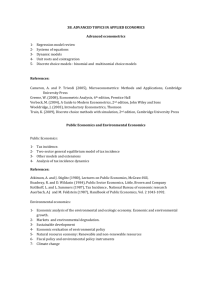Feenstra ch 1
advertisement
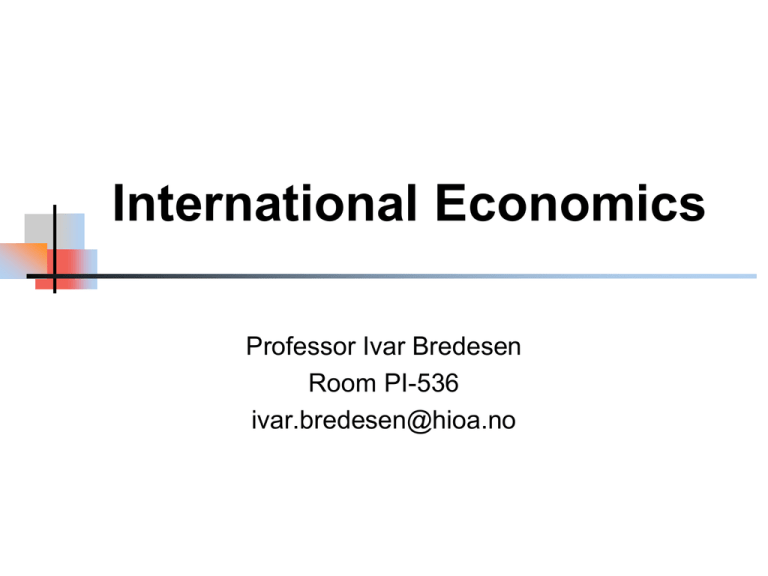
International Economics Professor Ivar Bredesen Room PI-536 ivar.bredesen@hioa.no International Economics • Specific subjects International trade theory. The basis for trade and the gains from trade International trade policy. The reasons for and the effects of trade restrictions Balance of payments. A nations total receipts and total payments to the rest of the world Foreign exchange markets. Exchange of one national currency for another Open economy macroeconomics. Stabilisation policies in the open economy 2 of 69 International Economics • Basically, the course is divided into two parts International trade theory and trade policy International Macroeconomics • It will be assumed that students master basic microeconomics and macroeconomics • We will mostly explore theory using graphical analysis with little use of mathematics • 4-hour closed book exam in December Choice of 4 among 6 questions No continous assessment 3 of 69 International Economics 4 of 69 International Economics • Required reading Feenstra and Taylor: International Economics, 3rd ed. 2014 Chapter 1 – 6, 8, 9, 19, 21 Baldwin/Wyplosz, ch. 15 A study guide by Stephen Yeaple is also available for the Feenstra/Taylor book • Textbook web: http://www.macmillanhighered.com/Catalog/product/inte rnationaleconomics-thirdeditionfeenstra/studentresources#tab 5 of 69 Recommended reading • Excellent non technical book written by one of the leading trade economists in the world, Elhanan Helpman • Recommended as a supplement, but cannot replace textbook 6 of 69 International Economics • International Economics - economic interdependence among nations • Globalisation Flow of goods and services across borders Movement of people and firms Spread of culture and ideas between countries Tight integration of financial markets • Kofi Annan, former secretary general of the United Nations (2000) The main losers in today`s very unequal world are not those who are too much exposed to globalization. They are the ones who have been left out. 7 of 69 Worlds largest exporters 8 of 69 Trade in a Global Economy • Why do countries trade? They can get products from abroad cheaper or of higher-quality than those obtained domestically. The fact that Germany is among he largest exporter of goods shows its technology for producing high-quality manufactured goods. China produces goods more cheaply than most industrialized countries. • In the first part of the course, we will examine several models explaining international trade • How do we measure the volume of trade? Bilateral trade flows can be hard to interpret Another way to measure trade is by looking at its ratio to GDP. 9 of 69 Trade vs. GDP 10 of 69 Trade and the financial crisis FIGURE 1-5 Change in the Value of Trade, 2007–2009 (percent) As a result of a worldwide financial crisis and economic recession, the value of trade plummeted between early 2008 and early 2009. 11 of 69 International Trade • The First “Golden Age” of Trade was from 18901913, and the second one in the period after WW2 • Trade had a setback in the interwar period, partly due to trade barriers. This decline in the world economy lead the Allied countries to meet after WWII to develop policies to keep tariffs low. General Agreement on Tariffs and Trade (GATT) which became the World Trade Organization (WTO) • Trade barriers refer to all factors that influence the amount of goods and services shipped across international borders. 12 of 69 Barriers to Trade Figure 1.4 Average Worldwide Tariffs, 1860–2000 13 of 69
